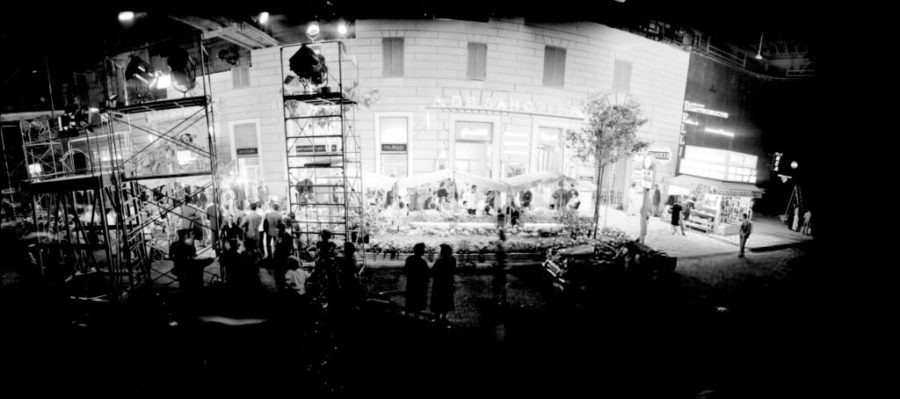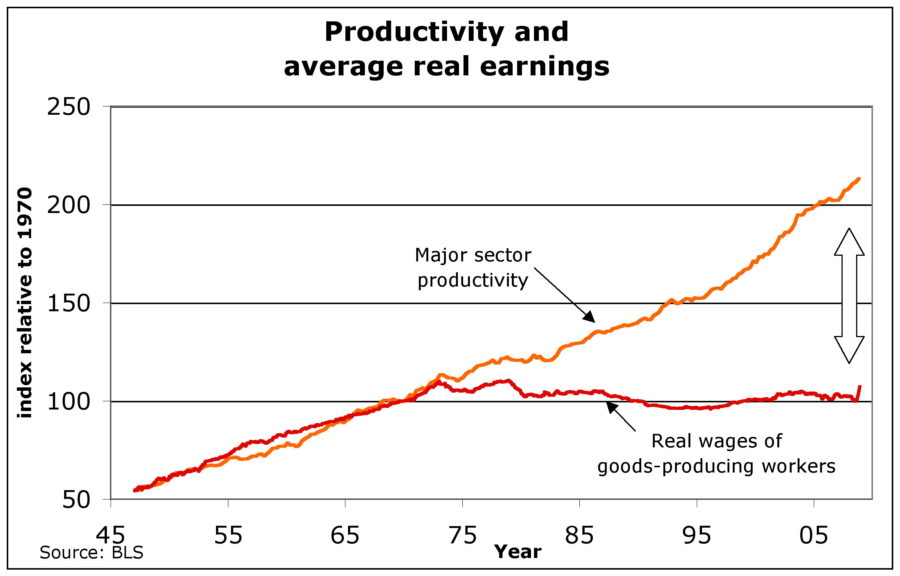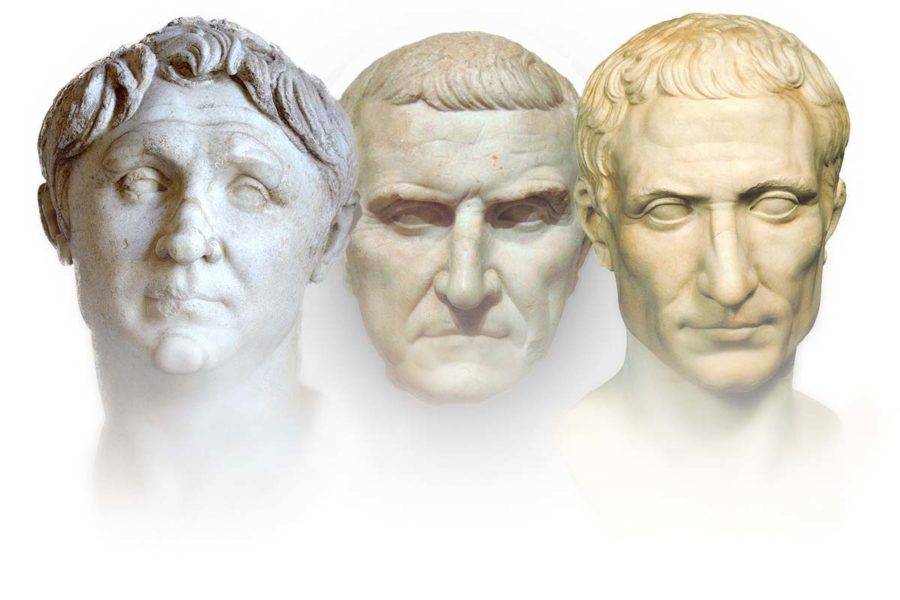Today it is shameful to be unemployed and regarded as an achievement to sell oneself into part-time slavery, meekly accepting as natural that one is not free for half one’s waking hours.
Theodore Zeldin, The Hidden Pleasures of Life – A New Way of Remembering the Past and Imagining the Future (2015).
With an Irish general election looming, Taoiseach Leo Varadkar has again appealed to early risers.[i] Thus the early bird, rubbing sleep from his swollen eyes, is promised an array of tax cuts. This is compensation, we assume, for the long commute and attendant sleep deprivation involved in living in a ‘starter home’ in a peripheral zone, all to the ultimate benefit of a minority in an increasingly unequal society.[ii]
I am a champion for the self-employed & people who get up early in the morning and nobody gets up earlier than the Irish farmer! As long as I am around self employed people will never be taken for granted #IFAAGM
— Leo Varadkar (@LeoVaradkar) January 16, 2018
Considering the impending obsolescence of so many forms of work, however, politicians should be daring to dream of another kind of life; one where human flourishing is given priority; and what Greta Thunberg described as the ‘fairy tale’ of economic growth-without-end is abandoned.
As David Graeber put it: ‘The real question is how to ratchet down a bit more toward a society where people can live more by working less.’ He further opines that the non-working poor may be ‘pioneers of a new economic order that would not share our current one’s penchant for self-annihilation.’[iii]
The Tedium of Work
Neo-liberalism is predicated on a shaky assumption that success, measured in money, sex or fame, derives from a single-minded focus on hard work, and paying off one’s debts. It has led to Leo’s misplaced veneration for the alarm clock, and political scapegoating of ‘welfare cheats,’ and others among the ‘undeserving’ poor.
It is a grand delusion that early rising and hard work make dreams a reality, at its extreme recalling the banner greeting Concentration Camp inmates: arbeit met frei ,‘work will set you free’. A devotion to labour for its own sake is misplaced. In fact, an excess can dull the mind.

Detail of the main gate at Dachau concentration camp in Germany.
Adam Smith, the father of Classical Economics, argued that the tedium of monotonous industrial tasks would render anyone ‘stupid and narrow-minded.’ He maintained that the torpor of repetitive labour renders an individual incapable ‘of relishing or bearing a part in rational conversation’, or ‘conceiving generous, noble or tender sentiment;’[iv] asserting this would come in the way of ‘any just judgment concerning even the ordinary duties of private life.’
Over the course of the last century especially, workers, including those engaged in monotonous ‘unskilled’ work, joined forces to win a series of improvements to their conditions. These included a five-day week and eight-hour working day, along with a living wage. It brought scope for many, if not most, among what has been pointedly referred to as ‘the working class’ to enjoy a reasonable standard of living across the Western world.
Steadily rising standards of living in Post-War U.S and Europe brought a profusion of recreational activities including sports, and unprecedented access to the arts, especially film – the defining cultural form of the twentieth century – along with access to higher education for the children of the poor.

La Dolce Vita
With a decent life available to most of the population, the decades after World War II are known as Les Trente Glorieuses in France and Il Miracolo Economico in Italy, as salaries kept pace with labour productivity. In large part down to the political clout of the left, including Communist parties.
But these developments have given way to a sustained global period of widening inequality,[v] associated especially with Ronald Reagan in the U.S. and Margaret Thatcher in the U.K.. Henceforth according to David Graeber, ‘we were all to think of ourselves as tiny corporations.’[vi] This has worked to the detriment of the bulk of the population ill-equipped to understand the complexities – or just uninterested – in financial transactions. Above all it has brought a veneration of property ownership, with speculation encouraged by unscrupulous banks, leading to the property inflation that culminated in the Financial Crash of 2008, when the bubble burst in Ireland and elsewhere.
Far from bringing wealth to the many, since the 1970s real wages have stagnated, while private, and public debts spiraled, with the wealth of a few expanding grotesquely, especially in recent times.

U.S. Productivity v Real Wages (source https://thecurrentmoment.wordpress.com/2011/08/18/productivity-inequality-poverty/)
Tellingly, whereas in the 1950s the CEO of General Motors, then the model of a successful US business, was paid 135 times more than assembly-line workers, fifty years later the CEO of Walmart earned 1,500 times as much as an ordinary employee.[vii] In recent times, the efficiencies enabled by new technologies, often protected by exclusionary patents, are enriching those at the apex of corporations.
Unions, which were vital for bringing workers’ rights, are now in retreat. Those that remain often only represent employees in privileged positions. A chasm below an unemployment cliff looms in front of us, with little opposition to the new world order.

Automation
These developments are a feature of a technological revolution, especially in communications with the advent of the Internet, shattering an apparent post-Cold War consensus, and now shifting the political substrate. The world wide web has rendered words, video and music virtually uncommodifiable, wreaking havoc upon the livelihoods of independent-minded writers, musicians and others artists, who struggle to share their revitalising visions for life.
Automation now beckons in a host of industries which will further enhance ‘labour productivity’, at the expense of labour, and to the benefit of capital.
Our present disorder is comparable to the expansion of the Roman Republic in the first century BCE, when territories to the east and west fell to generals such as Caesar, Pompey and Crassus. These charismatic consuls pillaged unprecedented loot, generating an early form of welfare populism and eventually an oligarchic triumvirate. This gave way to the Roman Empire in 49BCE, under the first Emperor Julius Caesar.

The First Triumvirate of the Roman Empire: Caesar, Pompey and Crassus.
Today, we have our own benign despots within Big Data, whose loot would make an emperor blush. Their algorithms convey us from purchase to purchase, intruding ever more into our inner-most thoughts. Most worryingly, the independence of voting intentions are being severely tested by sophisticated (anti-) social media platforms.
At the outset of a dizzying technological revolution a small number of individuals wield unaccountable power, and as time passes the freedom of the Internet recedes. Just as the Celtic tribes of Gaul cowered before the ingenuity of Roman legions, structures of democratic government – states and transnational bodies – melt before the tortoise formations of the corporations, and their often solipsistic commanders.
As in another age where the value of men was assigned in battle, a capacity to appeal to a wide public with a new Internet tool, whether useful or not, has brought mind-boggling fortunes to the founders and shareholders of Google, Facebook, Instagram and the rest. There is little to prevent villainous characters developing unassailable political power through vast fortunes. The descent of the Roman Empire into corruption and excess should serve as a warning.
Moreover, just as Johannes Gutenberg was buried in an unmarked grave while others profited from his invention of the printing press, opportunism rather than ingenuity tends to be rewarded; as with the phenomenon of the real estate speculator Donald Trump, who recalls the fiddling Emperor Nero himself. This acknowledged master of the soundbite is the product of inherited wealth, and the redoubtable political nous of Steve Bannon, who preyed on the insecurities of the American worker.

Johannes Gutenberg buried in an unmarked grave.
Yet it took an outlier such as Bannon, back in 2017, to lay down a challenge to our New Age consuls: ‘They’re too powerful. I want to make sure their data is a public trust. The stocks would drop two-thirds in value.’[viii] Where were mainstream liberals in this debate we might ask?
One such liberal centurion, Leo Varadkar, offers no opposition to the current economic order. Indeed, he unashamedly promotes dominant corporations in Ireland, through a low, or non-existent, corporation tax regime, long justified simply from the perspective of national self-interest. We had an ‘Ireland First’ doctrine here long before Trump invented America’s.
The Irish state has been reduced to the role of croupier at a casino table where the super-rich trouser their winnings without being required to even tip the attendants. So obsequious has the Irish government become that the award of an enormous windfall to the exchequer of the Apple tax bill is resisted: ‘Would sir like to cash his chips in now or later?’
Fuller Flourishing
The impending obsolescence of much unskilled work may provide an opportunity for a fuller flourishing of homo sapiens. Liberation from tedious tasks, such as driving and manufacturing, should provide scope for the development of the “generous, noble and tender” sentiments referred to by Adam Smith. This wealth ought to be shared with the Global South too that was ravaged by the imposition of unfair loans during the 1970s and 1980s.
A powerful remedy to our present difficulties could be for a wealthy country such as Ireland to provide a legal guarantee of a basic standard of living for all citizens. This could offer an opportunity for individual fulfillment in various domains, to the ultimate benefit of society at large. It requires additional funding to educational and cultural facilities, and depends on the state regulating the housing market.
An often parasitic financial services industry should be regulated and taxed effectively, while life’s essentials: especially a roof over one’s head, nutritious food, and public transport, must all become affordable; if not the cheap air travel to which we have grown accustomed. This may seem a Communist ideal, but greater distribution of wealth can work to the benefit of the small-time entrepreneur and lead to a thriving local market.
The Financial Crisis from 2008 originated in failings within the banking system, unconnected to what were, in fact, increasing efficiencies simultaneously occurring in the real economy. Rethinking economics in its wake involves questioning theoretical limitations on fiscal stimuli. The value we attribute to money is a product of the human imagination, and governments possess a singular capacity to generate more of it through expenditure, as exponents of Modern Monetary Theory demonstrate.

Magical money.
Thus George W. Bush’s administration spent its way out of recession without generating inflation. On the other hand, the austerity measures characterising the response of E.U. member states brought prolonged recession, which disproportionately affected the poorest.
This was not only unnecessary, but economically counter-productive as those on low incomes tend to spend money on day-to-day goods, generally patronising local businesses. Whatever else one may say in favour of the E.U., the Growth and Stability Pact, enshrined in Treaty, represents an obstacle to any member state’s capacity to adopt a fiscal stimulus in periods of recession, and needs to be done away with.
Aligning policy to the basic needs of the population should be the role of democratic government, but this is often derailed by special interests. Socio-economic rights could ultimately be enshrined in European treaties so as to avoid a repeat of the disgraceful impoverishment of ordinary Greeks and Irish after the 2008 Crash. But generous government expenditure must avoid the bureaucratisation and careerism often found in the state sector, where many seem to stay in jobs through fear of the alternative.
Intoxication
Objections to ideas such as basic income and other socio-economic rights, often stem from a pessimistic assessment that if not spurred by the need to work, most of us will indulge our vices, especially excessive consumption of drugs and alcohol. Yet it is apparent that the oblivion of intoxication is associated with the end of the working week in jobs that do not inspire. It is also clear that feelings of worthlessness generate excessive, and often self-destructive appetites.
A legal right to economic security would take much of the fear, and even boredom, out of life, while affording the possibility for many of us to follow our dreams, and engage in the kind of blue-sky thinking from which innovations arrive. The pursuit of money as an end in itself, is a lust for power held in common with the warlords of yore. Billionaire moguls are a rare breed requiring containment (who in their right mind would have the motivation to earn more than a billion?), and perhaps even compassion.
Naturally, many of us enjoy the regularity and community of daily work. There is nothing wrong with that and numerous roles will survive the technological onslaught, preserving the satisfaction many derive from a regular schedule.
Home-makers, farmers, carers, and teachers of all kinds will always be required. The satisfaction of craftsmanship and independent enterprise should be enhanced, so as to generate greater pride and commitment in a chosen field. Goods produced in an ethical and sustainable manner could be encouraged through education, and targeted subsidisation aimed at a diminished carbon impact and reduced waste.
Technology professionals are particularly prized in our economy, and their continued usefulness is assured. Many wish to devote their talents towards altruistic goals, however, rather than work for vampire corporations, which exploit people and the Earth. The model of the open source Linux operating system – such as I avail of in this software – shows how a spirit of cooperation endures to make technology a collective resource.

Open-source Linux operating system.
Company Law
We might also contemplate a radical shift in company law. The inherent danger of profit-seeking corporations was once widely recognised. Thus, between 1720 and 1825 it was a criminal offence to start a company in England, during a period of rapid economic expansion.
In the United States until the nineteenth century there were two competing ideas regarding the purpose of companies: the first involved those with charters restricted to the pursuit of objectives in the public interest, such as canal building; the other regime issued charters of a general character, allowing companies to engage in whatever business proved profitable.[ix]
The latter category emerged triumphant, divorced from responsibility to fellow citizens; an unaccountable abstraction with separate legal personality established in the landmark 1897 case of Salomon v. Salomon. By altering the nature of the company under law we may continue to harness the thrusting energy of entrepreneurship, but for positive ends.
Acquisition of wealth is not the be-all and end-all for most of us, especially if basic needs are met: we may still have a real dedication to what we do and the drive to achieve it without the promise of untold riches. Changes in company law requiring any enterprise to have a public interest purpose contained in articles and memoranda of association could prove hugely beneficial to society at large.
Human creativity is manifest in a wide variety of fields. We may discover different vocations throughout our lives, some economically productive, others seemingly desultory, but perhaps crucial to individual development, and sanity, at particular junctures in life. How many criminals – a huge financial burden on any society – are the product of unhappy careers?
The technologies we have developed should allow many of us to indulge our passions, which can ultimately be to the benefit of all.
For some of us, the orthodox structure of the working day is unsatisfactory, and diligence occurs in pursuit of self-ordained objectives, rather than via external imposition This may seem like the privilege of an avant-garde, who tend to have enjoyed educational privileges, but many are increasingly imperiled by current economic structures, and wish to stand apart from what amounts to a conspiracy promoting the purchase of property.
We might draw wisdom from the lifestyle of the early modern craftsman, who was not beholden to a dictatorial clock, which has cast its shadow over the working day since the Industrial Revolution. Households would retire for a few hours after dusk, waking some time later for an hour or two, before taking what was referred to as a second sleep until morning.
During this interlude, people would relax, ponder their dreams, or perhaps make love. Others would engage in activities like sewing, chopping wood, or reading, relying on the light of the moon, or newly invented oil lamps.
Nor was the working week set in stone, and the seasons would dictate the extent of one’s labour. Naturally, the number of burghers who dragged themselves out of a generalised misery at that time was limited, but those managing to do so could operate in tune with their own bodies and the rhythms of nature, rather than the demands of the omnipotent factory owner who emerged ascendant after the Industrial Revolution.

The Factory Clock.
Winners and Losers
The level of poverty we permit in our superficially developed societies is, simply, unconscionable. Insecurity and fear afflict far more than those living in destitution, and are the silent forces that drive addiction and insanity. We have our winners and losers, but the number in the former category has declined considerably in recent decades, as the technological race stretches out the field.
Just as the Roman Empire grew out of economic imbalances resulting from conquest, our own societies confront unassailable capital, which feeds a delusion that chosen people can be saved from barbarian hordes.
The possibilities for homo sapiens are boundless. But we require basic safeguards to flourish. Companies can operate for the benefit of society as a whole, harnessing the dynamism of the entrepreneur, and working cooperatively as the craftsman once did. Let us avoid the fate of the Roman Republic, and prosper together.
An earlier version of this article appeared in February, 2018.
Follow Frank Armstrong on Twitter.
[i] Fintan O’Toole, Varadkar’s vacuous slogan reveals a mean streak,’ Irish Times, December 31st, 2019, https://www.irishtimes.com/opinion/fintan-o-toole-varadkar-s-vacuous-slogan-reveals-mean-streak-1.4127418?mode=sample&auth-failed=1&pw-origin=https%3A%2F%2Fwww.irishtimes.com%2Fopinion%2Ffintan-o-toole-varadkar-s-vacuous-slogan-reveals-mean-streak-1.4127418
[ii] Elaine Edwards, ‘Irish inequality blamed on ‘unusually high’ levels of low pay and weak protections’, Irish Times, February 19th, 2019, https://www.irishtimes.com/news/social-affairs/irish-inequality-blamed-on-unusually-high-levels-of-low-pay-and-weak-protections-1.3798081
[iii] David Graeber, Debt – The First 5,000 Years, Melville, London, 2011, p.390
[iv] Theodore Zeldin, The Hidden Pleasures of Life – A New Way of Remembering the Past and Imagining the Future, Maclehose Press, London, 2015 p.77
[v] Ted Knutson, ‘Income Inequality Up In Every State Since The 1970s, Says New Report From Liberal Think Tank’, Forbes, July 21st, 2018, https://www.forbes.com/sites/tedknutson/2018/07/21/income-inequality-up-in-every-state-since-the-1970s-says-new-report-from-liberal-think-thank/#3f0e83a023e9
[vi] Greaber (2011), p.377
[vii] Zeldin (2015), p.220
[viii] Gabriel Sherman, ‘“I Have Power”: Is Steve Bannon Running for President?’ Vanity Fair, December 21st, 2017, https://www.vanityfair.com/news/2017/12/bannon-for-president-trump-kushner-ivanka
[ix] Zeldin (2015), p.232




